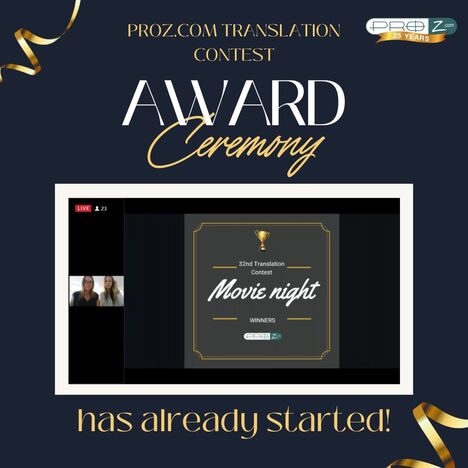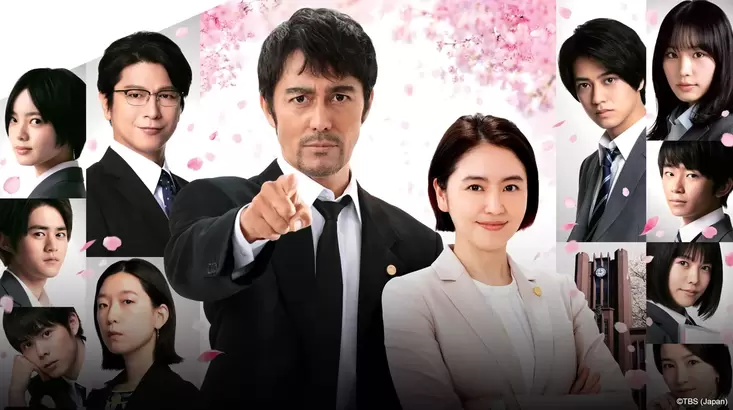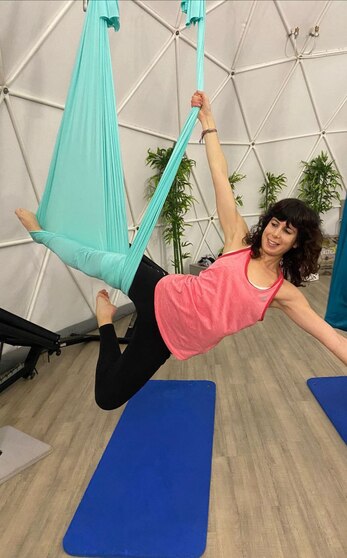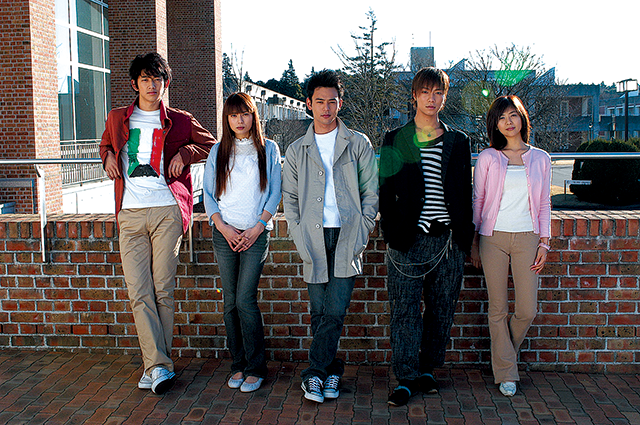|
POV: sei una traduttrice e dici sempre "traduzione" al posto di "tradizione".
😁 Il mio 𝒍𝒂𝒑𝒔𝒖𝒔 𝒍𝒊𝒏𝒈𝒖𝒂𝒆 più frequente riguarda la parola traduzione e il verbo tradurre, su questo non ci sono dubbi. Nel parlato, infatti, ogni tanto mi capita di infilare involontariamente un riferimento al mondo della 𝐭𝐫𝐚𝐝𝐮𝐳𝐢𝐨𝐧𝐞, anche quando non parlo affatto del mio lavoro. Approfitto di questa ammissione di colpa per tirare in ballo proprio 𝒍𝒂𝒑𝒔𝒖𝒔, participio passato del verbo latino "labi", cioè 𝐬𝐜𝐢𝐯𝐨𝐥𝐚𝐫𝐞. È una parola che mi ha sempre affascinata, visto che indica uno scivolamento, una caduta. 😊 Avete anche voi un lapsus linguae o un lapsus calami ricorrente? Fatemelo sapere nei commenti!
0 Comments
Il non detto, l'incomunicabilità fra singoli individui, le barriere culturali, la differenza di età.
Questi sono solo alcuni degli elementi attorno a cui ruota Lost in Translation (2003), considerato uno dei film più amati da chi si occupa di traduzione. La pellicola di Sofia Coppola esprime perfettamente il senso di frustrazione che deriva dal non trovare le parole giuste, oltre che la percezione di una distanza, a volte abissale, fra le persone e i loro mondi. E forse la traduzione è proprio questo, provare a colmare l'enorme vuoto che sembra dividerci, cercare di rendere nella nostra lingua un sentire che è altro da noi. Tradurre le intenzioni, i sentimenti e le necessità dell'altro è però un'azione che facciamo nella vita di tutti i giorni, anche senza scomodare lingue o culture diverse. Amo la traduzione perché crea ponti e avvicina realtà distanti. Eppure spesso avverto, nel lavoro così come nella quotidianità, l'innegabile presenza dell'intraducibile, quella parte di linguaggio verbale e non che proprio non ne vuole sapere di lasciarsi decifrare. Sono comunque convinta che, pur con tutti i limiti imposti dalla comunicazione e dalle nostre inevitabili diversità, la traduzione debba continuare a essere affidata all'essere umano. È vero, tradurre a volte significa lasciar andare termini, concetti o immagini che non riusciamo a traghettare dall'altra parte, ma anche questo fa parte del gioco. «Viviamo tutti sotto lo stesso cielo».
Oggi Public Affairs Office in the Sky sbarca su Netflix! Rika Inaba (Yui Aragaki), reporter ambiziosa e ribelle, ha il compito di seguire da vicino la forza aerea di autodifesa del Giappone. È così che incontra Daisuke Sorai (Gō Ayano), un ex pilota di caccia che condivide il suo stesso disincanto nei confronti della vita. Accomunati da aspirazioni fallite, i due intraprendono un viaggio alla ricerca di nuovi sogni. Ho avuto il piacere di tradurre e sottotitolare in italiano questa serie tratta dal romanzo Soratobu Kouhou di Hiro Arikawa. I suoi personaggi ben caratterizzati e la delicatezza nel trattare alcuni temi sono i punti di forza di questa serie del 2013, che ci insegna a guardare con una prospettiva diversa tante cose spesso date per scontate. Sailor Moon
hai la notte in te Principessa di un regno che non sai dov'è Se ho scelto di lavorare come traduttrice di audiovisivi, in parte è merito di 𝐀𝐥𝐞𝐬𝐬𝐚𝐧𝐝𝐫𝐚 𝐕𝐚𝐥𝐞𝐫𝐢 𝐌𝐚𝐧𝐞𝐫𝐚. Sarebbe riduttivo raccontare in poche righe il suo enorme contributo alla 𝐜𝐮𝐥𝐭𝐮𝐫𝐚 𝐩𝐨𝐩 degli ultimi quarant'anni, ma come millennial mi sento in dovere di rendere un piccolo omaggio a questa grande figura. Ogni volta che cantate a squarciagola le sigle di cartoni animati come 𝑫𝒓𝒂𝒈𝒐𝒏 𝑩𝒂𝒍𝒍 o 𝑺𝒂𝒊𝒍𝒐𝒓 𝑴𝒐𝒐𝒏, sappiate che è merito suo. Non solo perché ha scritto, come paroliera, i testi delle sigle che hanno accompagnato l'infanzia di un'intera generazione (e già questo sarebbe molto), ma perché ha letteralmente portato il 𝐆𝐢𝐚𝐩𝐩𝐨𝐧𝐞 in Italia e capito il potenziale di 𝐂𝐫𝐢𝐬𝐭𝐢𝐧𝐚 𝐃'𝐀𝐯𝐞𝐧𝐚 come interprete di tantissime di quelle sigle. Certo, molti anime sono arrivati al pubblico degli anni '80 e '90 con pesanti tagli o modifiche. La censura, infatti, non ha risparmiato tematiche, scene e personaggi ritenuti inappropriati per i giovani spettatori. Fatta questa doverosa premessa, ci tengo a ringraziare Alessandra Valeri Manera per aver acceso in tanti bambini e bambine la passione nei confronti della cultura giapponese. Quella passione è viva ancora oggi e, anzi, mi sembra dilagare più che mai. Mi dispiace solo non averla conosciuta, l'avrei sicuramente tempestata di domande. Grazie, Alessandra, a nome dei piccoli nerd che hai contribuito a crescere! 😊 Vivere il presente.
😊 Di tutti gli esercizi e le azioni quotidiane, credo che vivere il momento presente sia sempre la sfida più difficile. Pensare solo a quello che stiamo facendo, senza lasciarci distrarre dai programmi, dalle scadenze che incombono e dagli stimoli esterni è sicuramente una bella lotta. 💻 Ci sono giorni in cui concentrarsi sui singoli obiettivi risulta più facile, altri in cui viene voglia di fare mille cose contemporaneamente, altri ancora in cui sembra davvero impossibile dire alla testa di starsene lì e di non andare a zonzo. Lavorare da casa e avere la totale gestione del proprio tempo implica anche questo, riuscire a non sradicarsi dal presente. 🧘♀️ Lo yoga mi aiuta tantissimo a recuperare la concentrazione nei giorni "no", ma ognuno di noi ritrova la giusta motivazione come preferisce. E siccome non amo prendermi troppo sul serio, eccomi a meditare (male) insieme a due amiche e compagne d'avventura nello yoga. La tuttologia è una scienza che lascio volentieri a Pico De Paperis.
Post semiserio dedicato a chi pensa di poter offrire servizi che spaziano dalla traduzione giuridica alla cucina molecolare, passando per la pittura acrobatica e l'entomologia. Specializzarsi, a mio parere, è essenziale per lavorare con serietà e per presentarsi ai potenziali clienti in modo credibile. Meglio conoscere pochi ambiti, insomma, ma padroneggiarli come si deve. Non è possibile imbattersi in annunci di lavoro in cui il candidato o candidata sostiene di saper tradurre da e verso qualsiasi combinazione linguistica e di avere competenze in venti settori diversi. Adoro Pico De Paperis, il plurilaureato di Paperopoli, però lascio a lui la conoscenza di tutto lo scibile papero e umano. ---------------------------------------------- Sono 𝐅𝐫𝐚𝐧𝐜𝐞𝐬𝐜𝐚, traduco i tuoi contenuti dall'𝐢𝐧𝐠𝐥𝐞𝐬𝐞 e dal 𝐟𝐫𝐚𝐧𝐜𝐞𝐬𝐞 verso l'𝐢𝐭𝐚𝐥𝐢𝐚𝐧𝐨, la mia lingua madre. Non ti prometto unicorni, ma 𝐭𝐫𝐚𝐝𝐮𝐳𝐢𝐨𝐧𝐢 e 𝐬𝐨𝐭𝐭𝐨𝐭𝐢𝐭𝐨𝐥𝐢 a regola d'arte. Localizzo 𝐯𝐢𝐝𝐞𝐨𝐠𝐢𝐨𝐜𝐡𝐢 e 𝐬𝐢𝐭𝐢 𝐰𝐞𝐛. Vuoi saperne di più? 📩 [email protected] 💻https://www.francescaperozziello.com/ "No, non mi disturba affatto, mi dica".
Una qualsiasi giornata nella vita di una traduttrice o di un traduttore freelance: - traduci, fai ricerche, revisioni - rispetti le scadenze - ti aggiorni di continuo - fai rete - tieni la contabilità - pubblicizzi i tuoi servizi (marketing, croce e delizia del freelance) - ricominci da capo Poi squilla il telefono nel bel mezzo di una traduzione urgentissima e tu rispondi con la massima cordialità, anche se dentro stai malissimo. Tanto si sa, lavori da casa, lo sanno tutti che puoi interrompere in qualsiasi momento quello che stavi facendo. 😑 POV: You're home alone, typing on your keyboard, and you ask your cat for advice on the translation you're about to deliver.
Non esiste un unico metodo di traduzione.
Penso che ogni traduttore e traduttrice preferisca adottare una strategia del tutto personale. In alcuni casi può essere una tecnica presente fin dall'inizio della professione, in altri si può arrivare a consolidarla in seguito ad anni di pratica, traduzione dopo traduzione, consegna dopo consegna. Io, per esempio, amo dividere il mio lavoro in due momenti ben distinti. C'è una prima fase, che io chiamo "fase irrazionale": in questo stadio traduco di getto, cercando di entrare in sintonia con il testo che ho davanti e senza giudicare eccessivamente quello che faccio. Per me conta respirare con il testo, coglierne il tono e il suo modo di rivolgersi al destinatario, senza soffermarmi troppo sui particolari più tecnici. Nella seconda fase, che io definisco "fase razionale", disattivo il mio lato creativo e attivo invece la perfida gemella addetta alla revisione. Leggo il testo come se fosse stato scritto da un'altra persona, ne giudico con severità eventuali refusi o passaggi poco chiari, ricerco in modo maniacale i riferimenti alle fonti e mi assicuro che tutto il testo sia caratterizzato da un'indispensabile coerenza. La gemella buona e quella cattiva riescono ad andare d'accordo e per ora non hanno mai litigato, anche perché l'una è indispensabile all'altra.😊 E voi come traducete? Quale metodo o metodi adottate per tradurre? Fatemelo sapere nei commenti! "Volevo ringraziarti per la tua traduzione, mi sono emozionata tantissimo e ho potuto apprezzare questa serie tv grazie al tuo lavoro. Guardo serie asiatiche da anni ormai e trovare traduzioni belle è davvero raro."
Qualche giorno fa ho ricevuto questo bellissimo messaggio da parte di una spettatrice di Orange Days, dorama giapponese che ho tradotto per Netflix alcuni mesi fa. Ecco, io penso che messaggi come quello appena riportato diano senso al nostro lavoro. Noi traduttori e traduttrici siamo esseri solitari, strani eremiti che trascorrono le giornate a parlare con i personaggi mostrati sullo schermo, cercando di entrare completamente nel loro modo di pensare e di esprimersi. Nulla mi rende più felice di sapere che, da qualche parte in Italia o nel mondo, una persona ha potuto apprezzare un determinato prodotto audiovisivo grazie alla mia traduzione, specialmente se il prodotto in questione ha emozionato me per prima! La prossima volta che vi troverete a provare queste sensazioni dopo aver usufruito di una serie TV, videogioco o film, non abbiate paura di scrivere alla persona che ne ha curato la traduzione italiana: la renderete sicuramente molto felice! Sì, lo ammetto, ho un debole per i meme a tema Sanremo, anche se il festival è passato da un pezzo. 😊
🙄 Un chirurgo non entra in sala operatoria pensando di essere abbastanza bravo.
Un muratore non costruisce una casa pensando che la malta e i mattoni si leghino abbastanza bene fra loro. E allora perché, quando parliamo di professioni creative, non dovrebbe valere la stessa regola? Perché accontentarsi di risultati abbastanza soddisfacenti, se si può puntare al massimo? Questo post polemico va in due direzioni. La prima è ovviamente una frecciata nei confronti di chi, invece di rivolgersi ai professionisti, si accontenta di lavori mediocri, magari svolti da chi non esercita nemmeno una determinata professione. La seconda polemica è rivolta a noi, i professionisti stessi, perché spesso sembriamo non capire il valore del nostro lavoro. Non voglio dire che dovremmo vantarci ogni due secondi dei risultati raggiunti, ma perlomeno darci una piccola pacca sulla spalla e pensare al contributo fondamentale che diamo a un certo lavoro o settore. 💪 I am thrilled to announce that I won the 32nd 𝐓𝐫𝐚𝐧𝐬𝐥𝐚𝐭𝐢𝐨𝐧 𝐂𝐨𝐧𝐭𝐞𝐬𝐭 "𝐌𝐨𝐯𝐢𝐞 𝐍𝐢𝐠𝐡𝐭" held by ProZ.com!🎉
Thank you for this great opportunity. 😊 It's been a pleasure to take part in the 𝐄𝐧𝐠𝐥𝐢𝐬𝐡 𝐢𝐧𝐭𝐨 𝐈𝐭𝐚𝐥𝐢𝐚𝐧 competition and I hope to participate in the next contests. 👿 Revisionare la propria traduzione: un passaggio da fare con cattiveria.
Non so voi, ma in fase di revisione mi accorgo di essere particolarmente critica nei confronti delle mie stesse traduzioni. Quando riapro un testo, che di solito lascio decantare per una notte prima della consegna, mi rendo conto di giudicare la traduzione con pignoleria e, perché no, con una buona dose di astio. Sarebbe interessante studiare il meccanismo psicologico responsabile di tanta rabbia verso le nostre stesse traduzioni! 😄 Eppure, sotto sotto, credo che questa "rabbia" nei confronti delle nostre stesse scelte traduttive sia fondamentale per consegnare un prodotto finito soddisfacente e scorrevole nella lingua d'arrivo. Cosa ne pensate? 😊 Ah, hai una laurea! Bene, allora non dovrai mai più studiare.
Falso. 📚 Se, come me, lavori nell'ambito della traduzione, saprai che non si finisce mai di imparare. Lo studio e la ricerca fanno parte del nostro mestiere ed è impossibile pensare di continuare a offrire servizi degni di questo nome senza un costante aggiornamento. 🔬La scorsa settimana ho intrapreso un nuovo percorso di formazione insieme a Lorenza Oprandi, che mi guiderà alla scoperta della traduzione medica e biomedica. Ogni ambito della traduzione ha un suo lessico specifico e un modo preciso di rivolgersi ai destinatari: non ci si può improvvisare esperti ed esperte di un determinato settore! 🔮Sono molto curiosa e anche un po' emozionata, ma non vedo l'ora di addentrarmi in questo percorso di formazione. Anche voi state imparando qualcosa di nuovo? Fatemelo sapere nei commenti! 😊 🎬 Lo confesso, amo i sottotitoli.
E no, non lo dico solo perché il sottotitolaggio è uno dei principali servizi che offro. 📺 La verità è che, nel corso degli anni, ho sviluppato una vera e propria passione per i sottotitoli, tant'è che ormai rappresentano per me l'unico modo possibile per fruire dei vari prodotti audiovisivi. Il piacere dato dal naturale fluire della lingua originale di un video è qualcosa di prezioso e incalcolabile, anche quando la lingua parlata dagli interpreti non rientra fra quelle che ho studiato. Adoro sentire i diversi accenti, le inflessioni e il lavoro certosino che sta dietro all'emissione vocale di una certa frase, o persino di una singola sillaba. 🎭 Mi piacciono i giochi di parole, quelli che colgo da sola e quelli che comprendo solo grazie all'aiuto del traduttore o traduttrice che mi ha permesso di apprezzare il film, serie TV o videogioco grazie al proprio lavoro. E tu che rapporto hai con i sottotitoli? Fammelo sapere! 😊 - Where did you learn our language?
- I listened. This quote is from 𝙏𝒉𝙚 13𝙩𝒉 𝑾𝙖𝒓𝙧𝒊𝙤𝒓 (1999) by John McTiernarn, starring 𝐀𝐧𝐭𝐨𝐧𝐢𝐨 𝐁𝐚𝐧𝐝𝐞𝐫𝐚𝐬. I think it perfectly embodies the dream of learning new languages by listening to native speakers. 😁 Have you ever dreamed of learning or improving a language this way? 🎬 Il 15 febbraio è uscita su Netflix la serie 𝐃𝐫𝐚𝐠𝐨𝐧 𝐒𝐚𝐤𝐮𝐫𝐚.
L'avvocato Kenji 𝐒𝐚𝐤𝐮𝐫𝐚𝐠𝐢 (Hiroshi Abe), un tempo molto famoso e ora senza il becco di un quattrino, viene chiamato a salvare una scuola privata sull'orlo della bancarotta. Per impedire la chiusura della scuola, Sakuragi e la sua ex alunna 𝐍𝐚𝐨𝐦𝐢 Mizuno (Masami Nagasawa) devono riuscire a formare un gruppo di studenti e studentesse che vorrebbero frequentare la più prestigiosa università del Giappone. Se amate 𝑳'𝒂𝒕𝒕𝒊𝒎𝒐 𝒇𝒖𝒈𝒈𝒆𝒏𝒕𝒆 e i racconti di formazione, Dragon Sakura è davvero imperdibile! Sono felice di aver 𝐬𝐨𝐭𝐭𝐨𝐭𝐢𝐭𝐨𝐥𝐚𝐭𝐨 𝐢𝐧 𝐢𝐭𝐚𝐥𝐢𝐚𝐧𝐨 questa serie avvincente, in cui certo non mancano gli spunti di riflessione sul ruolo della scuola e degli educatori in generale. La velocità conta più della qualità? Sinceramente... io dico di no! È vero, le scadenze devono essere rispettate e ci sono alcuni progetti più urgenti di altri. Detto questo, la qualità richiede tempo. Non sempre la traduzione consegnata in fretta e furia è quella migliore, anzi... Soddisfare deadline irrealistiche compromette la qualità complessiva della traduzione e, di conseguenza, la soddisfazione del cliente finale. Come evitare di consegnare pastrocchi? Semplice, bisogna dialogare! Lo so, non è sempre facile chiedere di avere più tempo a disposizione, specialmente se lavoriamo con agenzie, ma ciò che conta è l'accuratezza del nostro lavoro. Lo dice anche il proverbio: "La gatta frettolosa fa i gattini ciechi". 😊 ----------------------------------------------------------- 💎Cerchi una traduzione 𝐢𝐭𝐚𝐥𝐢𝐚𝐧𝐚 a regola d'arte? Ci penso io! Sono Francesca Perozziello e localizzo i tuoi contenuti dall'inglese e dal francese verso l'italiano, la mia lingua madre. 📩 Contattami per parlare del tuo progetto: [email protected] 💡 Translators hate translation tests.
Usually, translators are not happy to take translation tests, especially if they are urgent and unpaid. As language professionals, we believe these trials aim to waste our time and energy. However... Have you ever tried to see translation tests as a test YOU put your potential clients through? Here below are three types of clients you should avoid like the plague: 💀 ❌ A client who wants you to complete the test in two hours but sends you the results after two months. ❌ A client who expects you to translate ten different types of texts without giving you any context. ❌ A client who sends you a test unrelated to your specialization fields, even if you're applying for a specific role. So, do you still think translation tests are a trap for translators? 😊 🤸♀️ Sport has always been a fun-damental part of my life!
✔ It helps you to see things from a different perspective. ✔ It allows you to face your limits and overcome your fears. ✔ It helps you to manage stress and anxiety. ✔ It teaches you to work hard to achieve a goal. ✔ It allows you to meet people who share your passions and interests. ✔ It's a great way to focus on your tasks. Physical activity should be part of everyone's daily routine, especially for those who spend most of their time frantically typing on the keyboard! 😉 *This post was originally written in English. I'm not an English native speaker, but that's the language I chose to write this post.* Allenare la creatività. 🏋♂️
Se fai un mestiere creativo sai bene quanto sia importante lavorare a mente lucida e trovare la soluzione giusta nel momento adatto. Certo, lavorando sotto pressione e con tante scadenze da rispettare non è sempre facile farsi venire in mente il gioco di parole perfetto o la traduzione più appropriata per un determinato modo di dire. 🤷♀️ Ma allora come si fa a sfruttare al meglio la propria creatività anche nei momenti più stressanti? È semplice: la creatività va tenuta in allenamento, proprio come qualsiasi altra capacità o abilità. Sì, ci sono persone che nascono con una maggiore propensione alla fantasia e all'inventiva, ma questo non basta. Se lasciata ad ammuffire in un angolino buio della nostra mente, la creatività si atrofizza e farà uno sforzo enorme per rimettersi in moto, proprio come una persona poco attiva che ricomincia a fare sport dopo anni di vita sedentaria! 🧙♂️ I giochi di ruolo come Dungeons & Dragons rappresentano, a mio avviso, un ottimo modo per uscire dagli schemi e mantenersi in allenamento! Calarsi nei panni di un determinato personaggio, agire e pensare come farebbe lui o lei, difetti e limiti compresi, è infatti un metodo divertente per stimolare il pensiero creativo! E tu quale "allenamento" preferisci? 😉 😎 Nuovo anno, nuovi progetti.
Cosa porta con sé ogni nuovo progetto di 𝐭𝐫𝐚𝐝𝐮𝐳𝐢𝐨𝐧𝐞? ✔ Tanto entusiasmo! Che bello, seguirò questo progetto per alcune settimane e potrò immergermi nel suo mondo. ✔ Ricerche terminologiche. Non smetterò mai di sottolineare l'importanza della coerenza terminologica in una traduzione, specie se si tratta di più documenti o di un lavoro che porteremo avanti per mesi. ✔ Una nuova sfida. Ogni progetto permette a traduttori e traduttrici di mettersi alla prova. ✔ Collaborazioni. È fondamentale comunicare correttamente con le altre persone che ci accompagneranno durante questo viaggio, siano esse project manager, altri traduttori o i nostri revisori. Ma ogni nuovo progetto porta con sé anche: ❌ Agitazione. Un po'. A volte tanta. Aiuto, ce la farò a rispettare le scadenze? ❌ Dubbi. Ho passato due ore a spulciare tutte le risorse che ho a disposizione e ancora mi chiedo se sia questo il traducente giusto. ❌ Sindrome dell'impostore. Sì, quella è sempre in agguato. Come affrontare al meglio un nuovo progetto? ✅ Impegnati, studia, ricerca. Non ci sono ricette miracolose, occorre rimboccarsi le maniche. ✅ Hai già riletto la traduzione e stai per consegnarla? Rileggila una terza volta. Anche una quarta. ✅ Fidati di chi lavora con te. Il parere di un/una collega può rivelarsi fondamentale. ✅ Comunica con il PM se pensi che ci siano ostacoli insormontabili o scadenze non realistiche. Ti vengono in mente altri consigli per non avere paura di un nuovo progetto di traduzione? 😊 Oggi Netflix accoglie Orange Days, serie TV giapponese del 2004.
Sarà che è il primo giorno di questo nuovo anno e, come ogni anno che inizia, porta con sé promesse e aspettative. Sarà che le storie incentrate sulle età di passaggio, come gli anni dell'università, riescono a toccare i tasti giusti dell'animo umano, facendoci riflettere su noi stessi e noi stesse come persone, ma Orange Days mi ha colpita particolarmente per la poesia e la delicatezza con cui tratta alcuni temi. Sae, violinista di talento che ha perso l'udito, comunica grazie alla lingua dei segni con la sua migliore amica, l'intraprendente Akane. All'ultimo anno di università le due ragazze fanno la conoscenza di Yuuki, che studia psicologia e ha paura della vita da adulto. C'è poi Shohei, playboy incallito che nasconde un animo sensibile, ed Eita, che dopo la laurea prenderà le redini dell'attività di famiglia. Sono felice di aver tradotto e sottotitolato in italiano questa piccola perla. Orange Days è il racconto dell'età dell'incertezza e delle promesse, una storia di speranze, paure e aspettative che accomunano un po' tutti noi. Da non perdere! "Robin Hood e Little John corrono nella foresta Saltando staccionate, schivando alberi e cercando di scappare Pensano solo a scappare e finalmente a farcela Accidenti, accidenti, che giornata!" Se avete amato Robin Hood di casa Disney del 1973, avrete capito che ho aperto il post con un'orrenda traduzione della sua canzone più celebre. Creatività e traduzione sono due parole che vanno a braccetto, specialmente in un ambito come quello audiovisivo: è impensabile poter traghettare un contenuto da una lingua all'altra, e quindi da una cultura all'altra, facendo affidamento solo su una resa letterale delle singole parole. Spero che il 2024 porti maggiore consapevolezza e rispetto nei confronti di una professione tanto importante, eppure spesso sottovalutata. |
|















